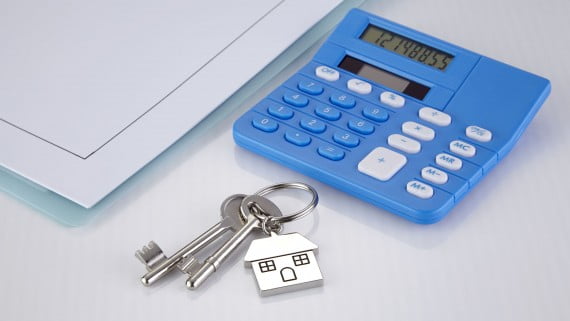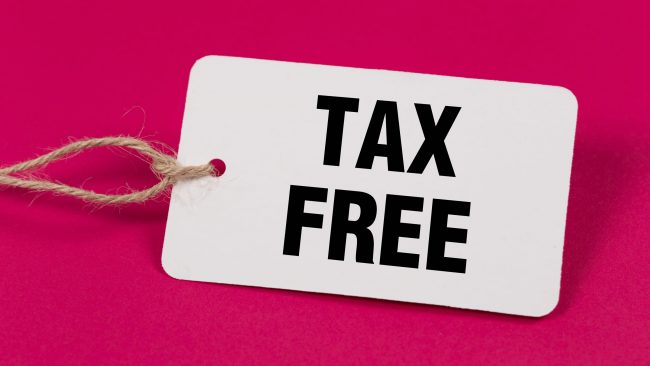When renting a home within the United Kingdom, you must take into account, in addition to the base rental price, the different taxes to pay, that is, which are included in the price, which are paid by the owner and which are additional. Tourists who are going to spend a few days can request a tax refund depending on their country of origin.
Below you have an index with all the points that we are going to deal with in this article.
Article Index
- 1.
- 2.
- 3.
- 4.
What does the rental price usually include?
When looking for a home in England, the price provided by the real estate or flats website should be broken down into three parts as a general rule: the base rental price, municipal taxes and the various receipts to be paid monthly or annually. Only by adding these three blocks will you get a more or less real approximation of what your expenses will be when living in British territory.
The base rental price is equal to home value and the most normal thing is that in the webs and advertisements it appears expressed as "pw", which is the abbreviation of the English expression per week, this is, per week. However, sometimes we can find "pm", in which case it means per month. Be that as it may, you should know that in the United Kingdom it is normal that the rent is due monthly, so you will have to convert a base price "pw" into "pm" using the formula £ 300 per week x 52 weeks / 12 months = £ 1.300.
The municipal taxes on the apartment are also usually the responsibility of the tenants and not the owner. The total sum of what must be paid annually for them ranges between £ 500- £ 2500, although this will always depend on the value of the house. The British Government has a municipal tax calculator on its website called Council Tax band which you can access by clicking this link. To fill out this form, you must know what the postal code of your home is.
As for the receipts, the owners are the ones who decide which ones the tenants will have to pay and which ones will not, although the most common are those for electricity, water and gas, always depending on the housing size, the number of rooms, etc. For example, if it is a one-bedroom apartment, the receipts will range between 200 and 300 pounds sterling a month. The older the building, the higher the heating costs. In the following section, the most common receipts are broken down.
Usual receipts
If you plan an extended stay in London in which you are going to rent an apartment, you must take into account a series of taxes (bills in English). Housing taxes may or may not be included in the price (bills included), so you should keep it in mind when renting, since if they are not included, the rent can go up a lot in price. In any case, taxes must be recorded in the final contract.
Below we list the different taxes that we may encounter when renting an apartment in London:
- council tax: This is a tax collection system approved by local authorities. They serve to cover the payment of the different public services. It only applies to domestic properties or homes and is directly proportional to the size of the home, that is, the larger the property (house, apartment, flat, etc.), the higher the tax to pay. Although it also depends on the area of London where our home is located, the average annual rate is usually £ 1.000.
- Water: This service is contracted in the local company of the city and its price is usually fixed and annual for the whole United Kingdom. There is the option to pay it by installments or installments, but if you prefer you can pay the total sum in a single payment, in which case they usually apply a 10% discount. The monthly price is usually £ 20-25.
- Electricity: In the United Kingdom, the electricity market is very wide and, therefore, you have several companies to choose from with different options. The monthly price is directly proportional to your energy consumption. It will also depend on whether you have everything electric or if you also use gas, as well as the system economy 7, widely used in the UK. This system consists of a device that stores energy during the night, part of the day when electricity is cheaper.
Apart from all this, you should bear in mind that, if you have appliances that run on gas, you will also have to pay a monthly bill that is usually around 25 pounds sterling. However, some providers often offer comprehensive plans that include both electricity and gas, the monthly price is usually around £ 80.
There are also a series of additional services for which we will have to pay taxes in case of hiring them:
- TV license: to have the right to see the television in the uk you must pay for this license, which amounts to about £ 145,50. This tax is used to finance the BBC and, if not paid, the fine can be up to £ 1.000. It is worth mentioning that a license is paid for each device that you have at home, that is, if you have two televisions, you will have to pay for two licenses.
- Broadband or internet: Today, few people do not have internet access from home. If you are going to reside in London, the most common providers are Virgin, Sky, BT, O2 and Vodafone, among others. However, not all of them operate in all areas, so you should verify it before hiring the service.
- Fixed telephony: Internet and broadband services in the United Kingdom work, for the most part, through ADSL, so there is no choice but to hire a telephone line or BT Line, as it is known there. The price of a basic line contracted from BT starts at around £ 11 per month and includes free calls to landlines within the UK.
Consumption taxes
Value Added Tax (VAT) is known in the UK as Value Added Tax (VAT) in English. The standard rate is 20%, although the reduced VAT rate is 5%. This reduced percentage applies to certain categories of goods and services such as those listed below:
- Child safety seats
- Social housing
- Fuels and fuel delivered to users and charitable organizations
- Installation of materials to save energy
- Products to quit nicotine
- Sanitary and maintenance hygiene products
- Heating installation
- Safety-related assets that are funded by grants
However, there are a number of goods exempt from VAT, such as children's books, newspapers, clothing and footwear, and food (except if the latter are served in cafes, restaurants, bars, etc.).
Tax refund for tourists
Upon arrival in the UK, certain items such as wine, alcohol or cigarettes are subject to a tariff tax at British customs. However, the regulations distinguish between merchandise originating from some member country of the European Union (EU) or merchandise from abroad. Furthermore, non-EU citizens get VAT refunded (VAT) of some purchases made in British territory.
- If you come from some EU country, You can enter an unlimited amount of tax-free items as long as you transport them yourself, are for personal use or as a gift, and you have paid the corresponding tax in the country where you purchased it. The Canary Islands, the Turkish Republic of Northern Cyprus, Gibraltar and the Channel Islands are not included in this group.
- If you come from a country outside the EU, You can enter a limited amount of tax-free items as long as you transport them yourself, are for personal use or gifts, and are over 17 years old. It is not allowed to combine a number of articles with other people to enter a greater quantity than the one allowed individually.
If the customs officer considers that your intention is to introduce these items to be sold in British territory, you will have to submit to a control and a series of questions related to the type and quantity of items, as well as why and how you acquired them, among others. To learn more about it, we recommend you click on this link (information in English).
This article has been shared 39 times. We have spent many hours collecting this information. If you liked it, share it, please:





